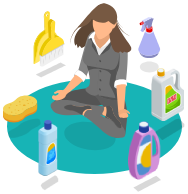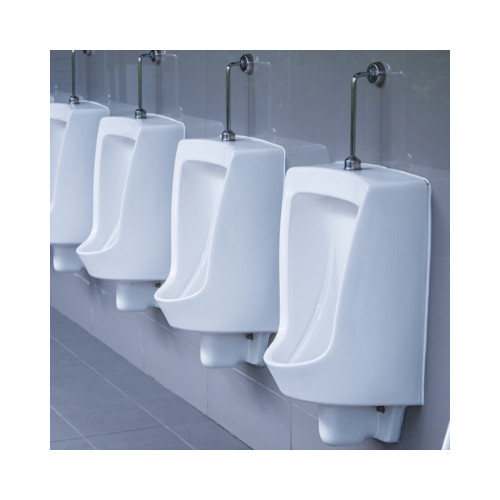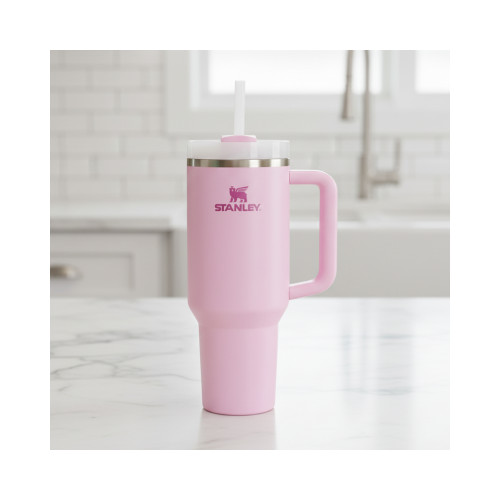
How to Buy in Bulk and Save Money
You don't have to be a doomsday prepper to be buying in bulk.
Whether you're buying for your family or your small business, bulk buying offers a way to cut down the cost of your weekly food shop or your company's overheads. It's also a necessity for those of you living in a rural location many miles from the nearest supermarket, where frequent trips to the shops aren't an option.
Once you embrace bulk purchasing you'll soon realise the benefits, not only for your bank account but for the environment as well.
However, there are some points you should be aware of before you buy all the toilet roll in your local supermarket!
What Exactly Is Bulk Buying?
So, it sounds simple? You buy as much as you can for as cheap as possible. Well... there's a little more to it than that.
It's important to look at the price per unit of the item in order to work out whether you're actually getting a cheaper price when buying in bulk.
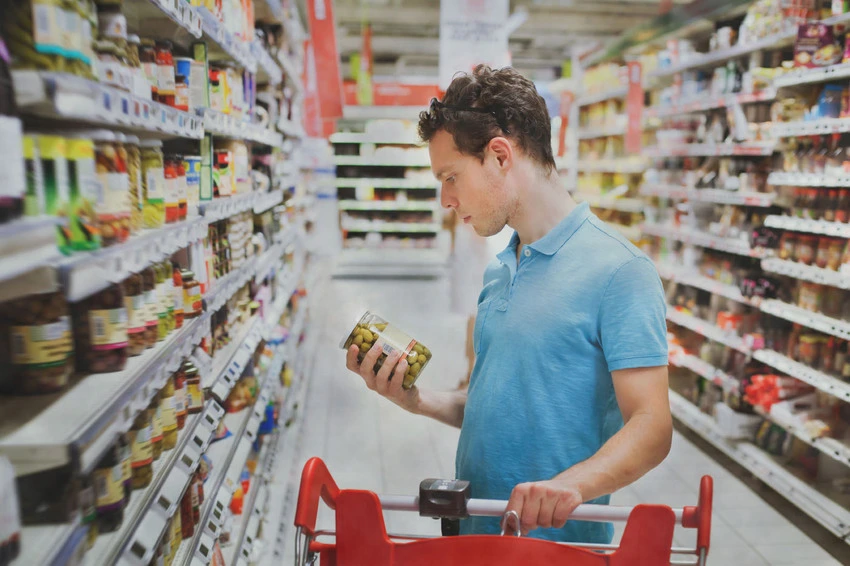
A unit is a measurement. For example, rice is measured in kilograms, whilst shampoo is typically measured in millilitres.
Luckily, by UK law, retailers must provide a selling price and unit price on labelled goods.
If you're looking to purchase five bags of rice, you'd calculate the price per unit by the total weight in kilograms you're buying, rather than by the number of bags. By doing this you can compare which brand of rice is the cheapest to buy in bulk.
The simple rule to remember when bulk buying is ALWAYS check the price per unit. Easy peasy.
Some Dos and Don'ts of Bulk Buying
Items that have a long shelf and are cheaper per unit when buying in bulk are what you should be on the lookout for.
Do Bulk Buy...
Cleaning Products
- Surface wipes - due to COVID-19 it's now more important than ever to be cleaning touch points in your home.
- Laundry detergent
- If you want to be eco-friendly and avoid using paper products, microfibre cleaning cloths are a great alternative to kitchen roll as they're reusable.
- Kitchen sponges
- Washing up liquid
Household Supplies
- Bin bags
- Cling film/tin foil
- Hand soap
- Paper goods such as toilet roll, kitchen roll and tissues are all items that you'll need to have plenty of (especially if you're prone to crying at sad films - we all do it!)

Bodycare
- Toothpaste
- Shampoo and conditioner
- Shower gel
- Hand wipes
Food and Drink
- Coffee
- Pasta - as long as you store it in an airtight container in a cool, dark place, this staple will last up to two years.
- White rice will last up to 4-5 years, whereas brown rice has a shorter shelf life due to containing more oil.
School and Office Supplies
Let's face it, your child's stationary seems to always magically disappear within weeks of the new school year, so a good stock of pencils is essential in any household!
Stationary is great to buy in bulk and can save you a lot of money when you do.
Don't Bulk Buy...
There are some items you may not realise expire and, therefore, are best to avoid buying in bulk.
Fresh Fruit, Veg and Meat
An obvious one to begin with. These perishables don't have a long shelf life, quickly becoming spoilt and unsafe to eat.
First Aid
Plasters and bandages lose their adhesiveness and become less sterile over time.
Maybe it's time to clear out your first aid cupboard?
Cleaning Products
Bleach can begin to lose its effectiveness after 6 to 12 months.
Condiments
Super-sized jars of mayonnaise and big bottles of ketchup may sound like a good idea when you have a big family.
However, once opened and refrigerated these condiments have to be eaten within a limited time, specified on the packaging.
Also, you must be careful to avoid cross-contamination. Each time someone puts their knife or even (god forbid) their finger into the jar of mayonnaise, bacteria can be introduced.
I hope this hasn't put you off your mayo!
Sweet Goods
Although it's tempting to stock up on your favourite sweet treats when they are on sale, having lots of processed food around the house could negatively affect your family's health, encouraging them to overeat bad foods.
Household Items
Most sun creams come with an expiry date, so unless you're planning on moving to a warmer climate it wouldn't be a good idea to bulk buy sun cream anytime soon.
Four Ways Bulk Buying Can Save You Some Pennies
Team Up With Friends and Family
Ordinarily if you are a single household you'd want to avoid buying perishables in bulk.
However, if you split that fantastic bulk deal between you and your friend or a family member, then you're not only saving money but preventing food waste as well!
The same applies for non-perishables, so you can now bulk purchase large quantities of surface wipes without worrying if you have enough cupboard space for them (or even enough surfaces that need wiping), splitting them between yourself and a fellow savvy shopper.
Keep a Lookout for Discounts and Coupons
We've all done an impulse buy purely because the discount seemed too good to miss.
But to be a great bulk buyer you must have some willpower. Don't be tempted by offers on items you don't need and may not use, as this will cause you to spend more than you usually would.
However, if an item already on your list is on special offer then by all means, go for it!
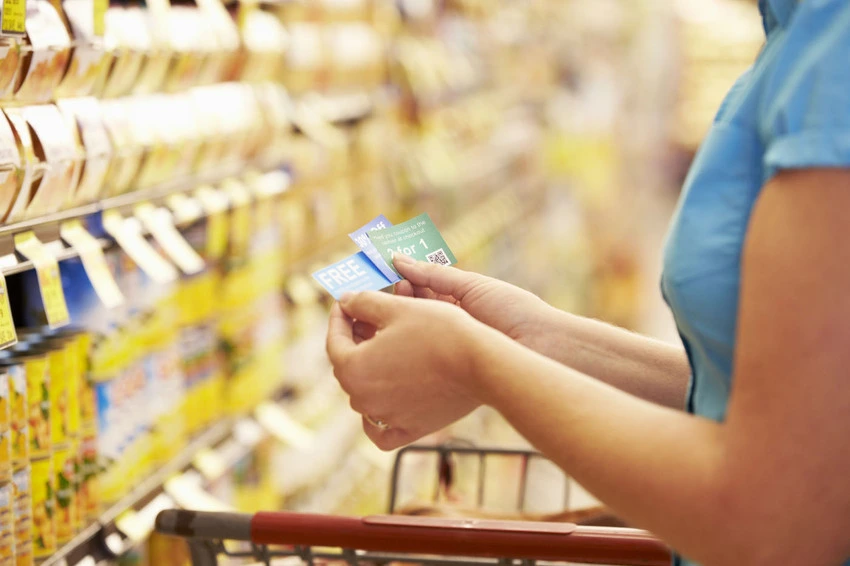
Buy in Bulk to Resell
Bulk buying products to resell at a higher price on retail websites such as eBay or at car boot sales is a great way to earn some extra money.
Items to resell could include: candles; bath and body products; pet supplies and household supplies.
Keep your eye out for closing down sales to bag some great bulk buys to resell.
Less Trips to the Supermarket
Buying in bulk will maintain your household's stock of staple items for longer.
This means you're likely to cut down your trips to the supermarket, which will save money on petrol.
Less trips to the supermarket also means there's less opportunity for you to pick up unnecessary items which add unbudgeted spending to your outgoings.
Also, a trip to your local supermarket can often end in a coffee and a slice of cake in the supermarket cafe to destress from the squabble you had over the last pack of kitchen roll with the lady in aisle seven.
So, bulk buying is a double win, as it allows you to cut down on unnecessary spending and helps you avoid the tedium of regular supermarket shops!
How to Be a Smart Shopper When Bulk Buying
The money-saving aspect of bulk buying will only work if you're savvy and smart when it comes to shopping.
Just because something is cheap and seems a good deal, you should not forsake product quality.
The phrase "you get what you pay for" springs to mind.
So, always weigh up the quality of the product as well as the price, as it may be worth spending that little bit more for a product that will perform better or taste better.
Furthermore, you could actually end up wasting money if you do not bulk buy properly.
It's very easy to be enticed by a special offer and return home with enough bagels to feed the whole of the UK, with only a week to eat them before they expire.
Therefore, you must consider whether you'll actually be able to use your bulk buys before the goods go out of date, otherwise you're simply wasting money rather than saving it. Most importantly, DO NOT buy in bulk if it forces you to use your credit card. Buying in bulk will only be beneficial to your bank account if the items are within your budget!
Clearly, buying in bulk requires some planning and serious consideration; however, when done properly, following the tips provided in this post, you're sure to save yourself some money.
Who doesn't want to be able to put extra cash towards their next summer holiday?
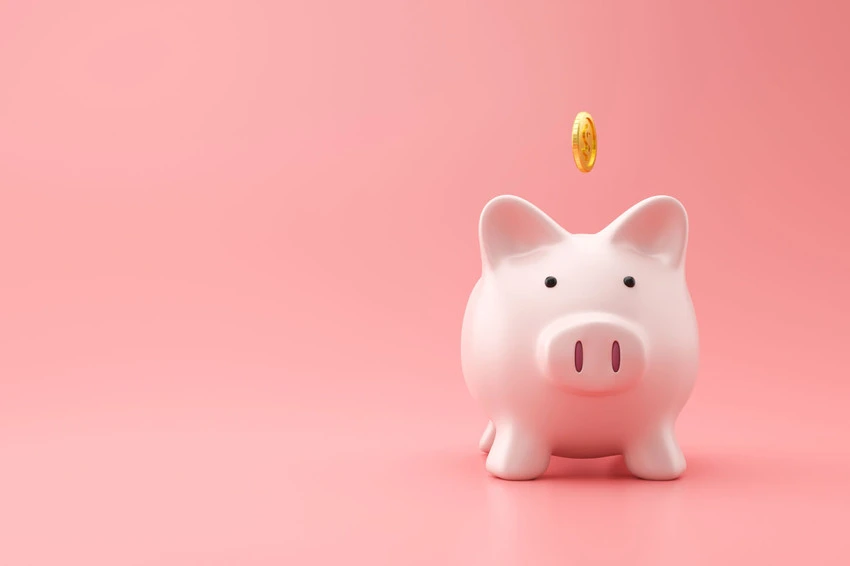
How to Buy in Bulk Whilst Minimising Clutter
Buying in bulk is pointless if you don't have anywhere to store your 1000 all-purpose cloths!
If buying items in bulk requires some savvy, then so does storing the goods to minimise clutter in your home.
A quick search on Pinterest is sure to come up with tonnes of storage hacks and here's just a few for you to try out...
A Floating Shelf for Dried Food
To free up room in your cupboards a floating wall shelf is a fantastic hack to hold dried goods such as pasta and rice.
You can store these goods in glass canning jars which are air tight, and use sticky labels to write the expiry date on the jars before placing them on your new floating shelf.
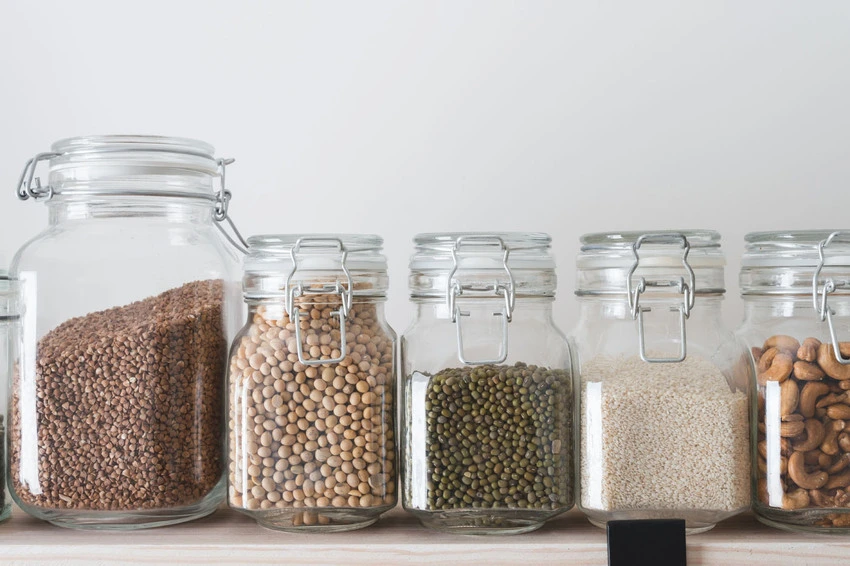
Over the Door Hanging Organiser
This nifty storage organiser could be a great addition to any bathroom for storing toiletries and toilet rolls.
The organiser would even work perfectly behind the door in your home office to hold those all important stationary supplies. Alas, no more time would be spent rifling through your drawers to find where exactly you put those new packs of pens. Have you checked the door?
This storage hack is a must have in any home to organise your bulk buys!
Over the Door Hanging Rack
Similar to the organiser, these hanging racks are more robust and are great for heavier items such as canned products. You could also use one to store cleaning products, which would keep them up high out of the reach of children.
Under the Bed Storage
Apart from the monster your five-year-old claims lives under his bed, this is a space that remains unused in many homes.
You can even buy storage compartments specifically for under the bed use.
The great thing is you can't see this storage hack so it's even less clutter on show in your house!
Pet Food Storage
It can be tricky finding the space to store all of your pet's supplies so some creativity is needed.
You can buy pet food storage bins that are airtight and can hold a huge volume of dry pet food. Some even come with wheels so you can easily move the bin to the best spot!
Another nifty pet hack is using a shoe rack to store all their toys, treats and pet care products.
4 Ways Bulk Buying Can Benefit the Environment
Bulk buying can reduce your carbon footprint in numerous ways.
Cuts Down on Car Use
If you are bulk buying then you are likely to visit the supermarket less, since you are well stocked for longer.
This would cut down on fuel usage and in turn help reduce greenhouse gas emissions, which contribute to climate change.
Furthermore, you may be encouraged to walk or cycle to the supermarket when you are shopping for fewer items.
As mentioned earlier, you can team up with friends and family to split your bulk buys. This will encourage car sharing to the wholesalers and will help decrease greenhouse gas emissions generated by separate car journeys.
Reduces Food Packaging Waste
Whilst some of the plastic packaging used for our food products can be recycled, a large amount still ends up in landfill.
As the rubbish decomposes in landfill, a harmful greenhouse gas called methane is produced.
Plastic packaging also ends up in our oceans and is responsible for the death of many aquatic animals, such as sea turtles. Shockingly, plastic outnumbers sea life six to one in our oceans.
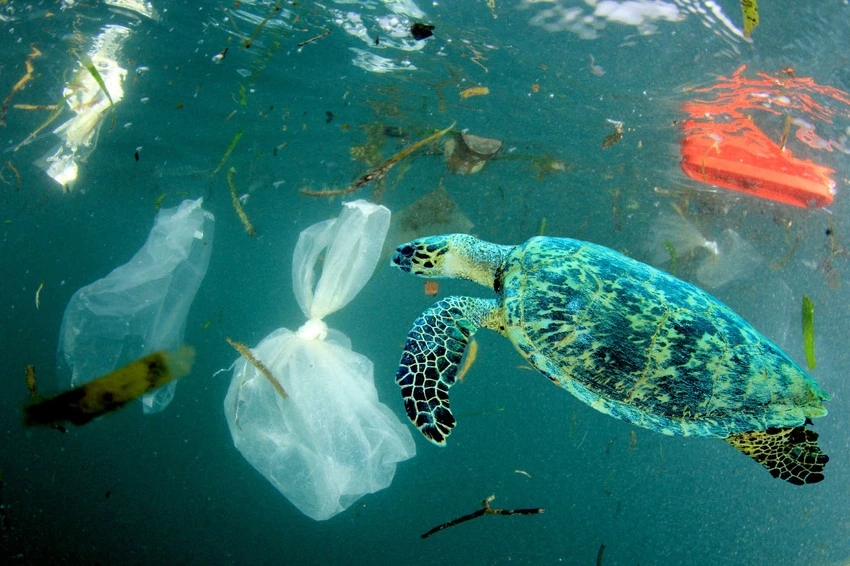
Most plastic packaging contains harmful and dangerous chemicals that can contaminate both water and soil, having a negative effect on the ecosystem and environment.
And so it's paramount that we do everything we can to reduce our plastic waste.
Bulk buying is a brilliant way to reduce plastic waste as it eliminates the need for single use plastic and unnecessarily fancy packaging.
Purchasing in bulk gives you the opportunity to bring your own packaging such as reusable containers to transport your bulk goods from the wholesalers to your home.
Products packaged in larger quantities often means less packaging than if you were to purchase smaller, separately packaged items.
Reduces Transport Miles
Since there's usually less packaging components for bulk goods, they require less overall transportation than individually packaged items which have far more plastic components that must be produced and transported.
Bulk products can be transported more efficiently as opposed to individually packaged items.
This is because bulk items can be packed more densely in boxes and large bags onto a truck, as opposed to individually packaged items which may require more trucks to transport them.
Try Buy in Bulk From Online Shops
Ordering your items in bulk from online shops not only helps save you the backache of hauling your bulk shop to your car, but can also help save the environment.
Physical stores require a lot of energy to run, which produces more carbon emissions and waste than online stores, which often only require warehouses and office space.
A balance between buying in bulk from online shops and shopping for lighter goods via walking or cycling to a supermarket would increasingly help cut down your carbon footprint if you didn't want to commit solely to online shopping.
However, you MUST bulk buy the right way.
If you bulk buy so many items that your household is unable to use them, then you'll generate more waste and have a negative impact on the environment.
It's Time to Get Bulk Buying
Now you know the ins and outs of bulk buying the right way, it's time to start reaping the rewards - for both your bank account and the environment. Almost all of our products on The Cleaning Collective have a "bulk buy" price, so get shopping right away by checking out our great range of home cleaning supplies, toiletries and even first aid!
Just remember these tips before you bulk buy:
- Always check the expiry date.
- Make sure you have enough storage space before you buy.
- Bulk buy with family and friends.
- Be confident that you'll actually use all of the items and avoid waste.
- Always check the price per unit to make sure it is actually cheaper to buy in bulk.
If you're a business, the best way to get a great price on our site is to purchase by the pallet. View our pallet deals to start saving now.
Happy shopping and have fun!
Stay Connected
Stay connected and be the first to know about our latest products, special offers, and exciting news:The Cleaning Blog
Want to learn more about cleaning? From the latest cleaning and hygiene news to handy how-to guides, why not check out our most popular blog categories.Stay Connected
Stay connected and be the first to know about our latest products, special offers, and exciting news: